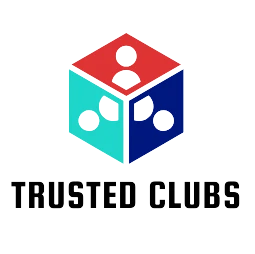Introduction: Effective science communication is more important than ever in a time when science and technology are changing the world at a rate never seen before. As the primary educational establishments, schools are essential in fostering students’ scientific literacy and curiosity. Science education is primarily based on traditional classroom instruction, however extracurricular activities such as science clubs have great potential to improve science communication. Schools with trusted clubs can be an effective, although underutilised, resource for advancing science communication initiatives.
Science Clubs’ Place in Education: Outside of the classroom, science clubs offer students a dynamic setting in which they can investigate scientific issues. These groups promote critical thinking, creativity, and experiential learning. Students can get a greater comprehension of scientific concepts and their practical applications by participating in projects, experiments, and conversations.
Benefits of Trusted Science Clubs
- Enhanced Engagement: Science clubs can make learning more engaging and fun. When students participate in interactive activities, they are more likely to develop a passion for science. This engagement is crucial for nurturing future scientists and informed citizens.
- Communication Skills: Effective science communication is about more than understanding scientific concepts; it’s about being able to explain them clearly and convincingly. Science clubs offer a platform for students to practice presenting their ideas, conducting demonstrations, and discussing scientific issues, thus honing their communication skills.
- Collaboration and Teamwork: Science clubs foster collaboration among students. Working on group projects teaches students to communicate effectively, share ideas, and solve problems together. These skills are essential not only in science but in any field they choose to pursue.
- Real-World Applications: Through science clubs, students can connect classroom learning with real-world issues. Whether it’s through environmental projects, health-related experiments, or technology-based challenges, students see the relevance of science in everyday life.
- Mentorship and Role Models: Trusted clubs often involve mentorship from teachers, scientists, and industry professionals. These mentors provide guidance, share their experiences, and inspire students. Having role models in science can motivate students to pursue scientific careers.
Strategies to Leverage Science Clubs for Better Science Communication
- Integrate Science Communication Training: Incorporate workshops and training sessions focused on science communication within the club’s activities. These could cover public speaking, writing for scientific audiences, and using digital tools for communication.
- Organize Science Fairs and Competitions: Hosting science fairs and competitions allows students to present their work to peers, teachers, and the community. This not only boosts their confidence but also improves their ability to convey complex ideas in an accessible manner.
- Collaborate with External Organizations: Partnering with universities, research institutions, and science museums can provide students with additional resources and expertise. These collaborations can lead to guest lectures, field trips, and access to advanced scientific tools and technologies.
- Use Digital Platforms: Encourage students to use blogs, social media, and other digital platforms to share their scientific findings and projects. This not only enhances their communication skills but also broadens the audience for their work.
- Promote Inclusivity: Ensure that science clubs are inclusive and accessible to all students, regardless of their background or academic standing. Diversity in science clubs can lead to a richer exchange of ideas and perspectives, enhancing the overall learning experience.
- Incorporate Contemporary Issues: Engage students in discussions and projects related to contemporary scientific issues such as climate change, public health, and technological advancements. This approach helps them understand the societal impact of science and the importance of effective communication in addressing global challenges.
Conclusion
Trusted science clubs in schools are an underutilized resource that can significantly enhance science communication among students. By providing an engaging, supportive, and dynamic environment, these clubs can help students develop the skills needed to communicate scientific ideas effectively. As the importance of science in society continues to grow, fostering strong science communication skills from an early age is essential. Schools should recognize the potential of science clubs and actively promote their role in nurturing the next generation of scientific thinkers and communicators.

